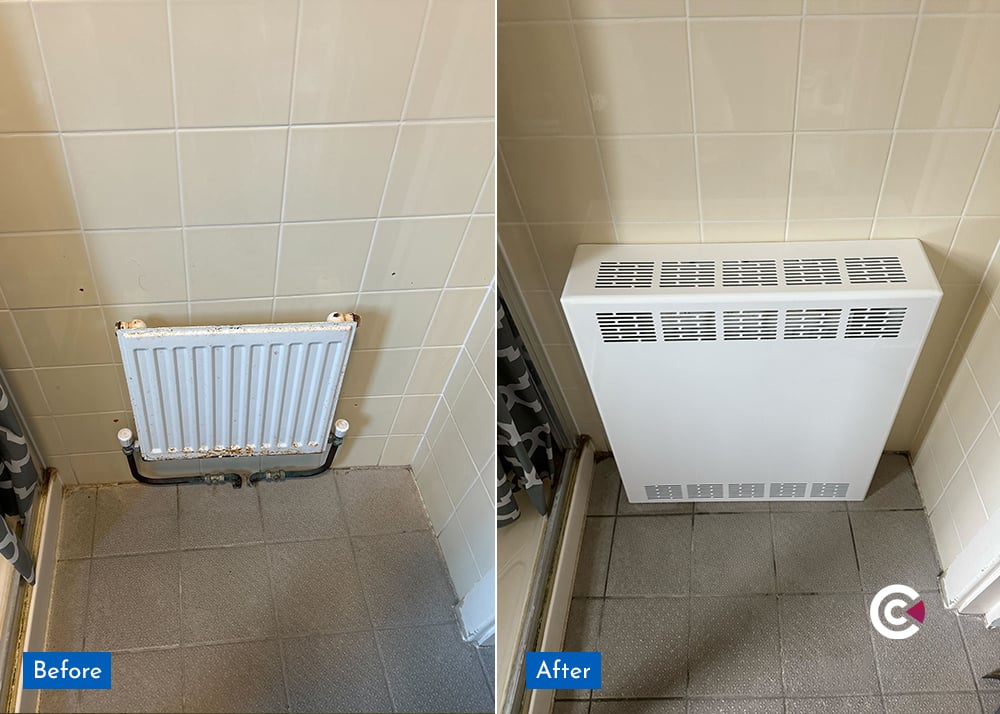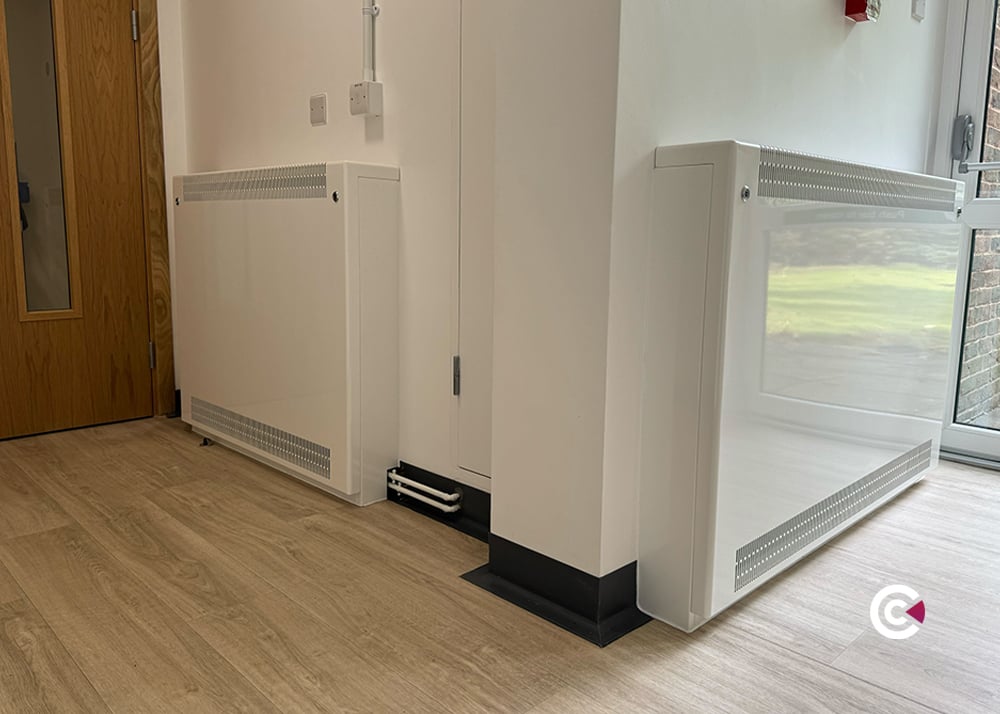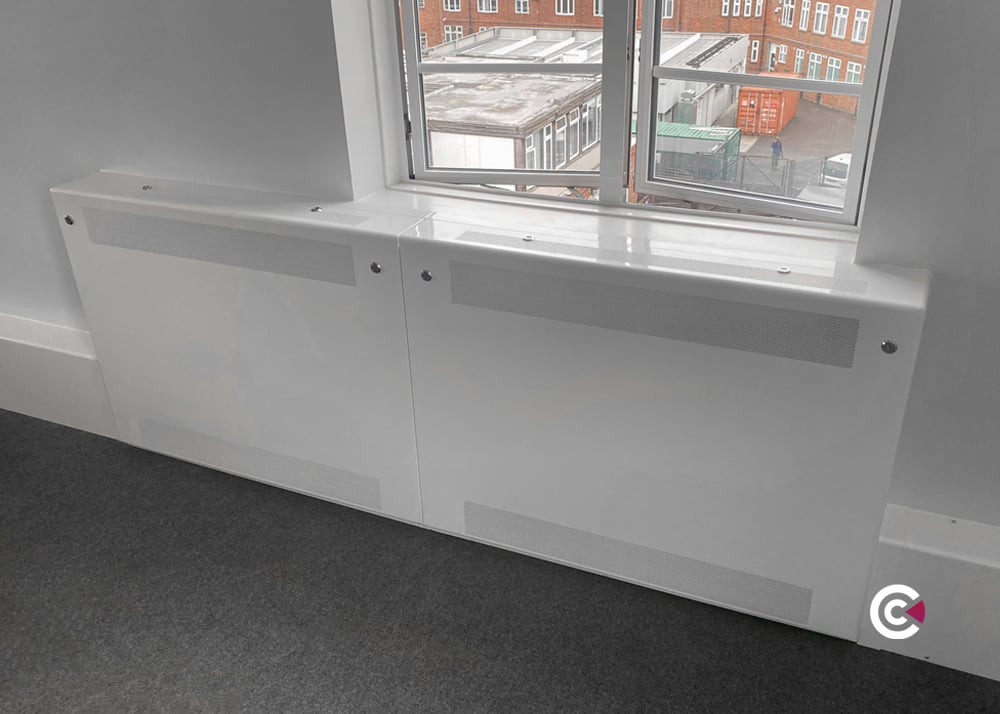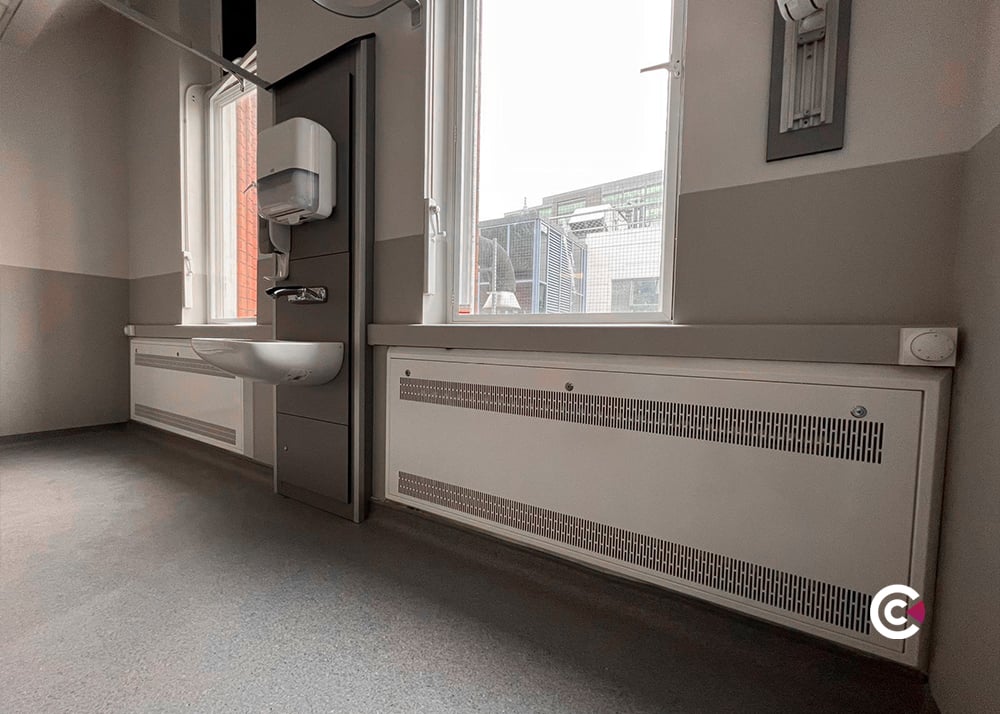As the number of ligature incidents continues to grow in mental healthcare units, it has indicated the critical need for anti-ligature designs in these facilities. These specialist designs play an important role in reducing ligature attachment points and promoting safety and the well-being of patients.
Anti-ligature products, such as radiators, light switches, and thermostats, are purpose-built to address the unique challenges of mental healthcare settings.
In this comprehensive guide, you will find the insights needed to select an effective and safe heating system tailored to the distinctive needs of mental healthcare settings.
Chapters include:
- Enhancing Healthcare Facilities in the UK With Anti-Ligature Products
- 3 Key Challenges in Healthcare Facilities Refurbishment Projects
- Designing for Mental Health Facilities: Key Goals and Considerations
- Essential Features of Products for Mental Healthcare Facilities
- Best Practices for Safe Heating Design in Mental Health Settings
- Safe Heating Practices in Mental Healthcare Facilities
- Understanding Building Regulations for Heating in UK Mental Healthcare Facilities
- The Best Mental Health Care Centre Heating Option
- Safer Heating Case Studies - Mental Health Unit Heating Upgrade
- Top Mental Healthcare Heating FAQs
- What Happens When You Specify an Anti-Ligature Radiator Cover?
Looking for more information? Click on each header to check out the expanded posts, where we look at each of these areas one by one in more detail, offering practical advice and expert insights on heating systems in mental healthcare settings.
Enhancing Healthcare Facilities in the UK With Anti-Ligature Products
Suicide by hanging and strangulation has been one of the most pressing concerns in psychiatric wards. If you haven't incorporated anti-ligature designs into your facility, you need to act now.
Conventional designs with traditional fixtures and fittings can pose significant potential risks, leaving service users vulnerable to self-harm or suicide attempts. Ligature points in healthcare settings, where patients can attach a ligature for self-harm, include common items like shower rails, coat hooks, radiators, and more.
Anti-ligature products, such as the DeepClean Extra range, featuring rounded edges, IP3X-rated grilles, and tamper-proof fasteners, can help eliminate these risks. Implementing anti-ligature heating systems can significantly reduce suicide rates by removing ligature points and reducing self-harm opportunities.
However, bear in mind that overly stringent measures can unintentionally upset patients, potentially increasing their desire for ligature. Be sure that your anti-ligature solution can create a homely and safe atmosphere without causing distress to service users.
3 Key Challenges in Healthcare Facilities Refurbishment Projects
The UK government's healthcare estate development strategy has shifted from new construction to refurbishment-based projects. Refurbishments aim to upgrade existing facilities to align with evolving technologies, patients' needs and regulatory standards, but they come with their set of challenges, including:
Limited Budget
Healthcare facility refurbishments often have lower budgets than new build projects. This limitation may pose challenges in executing the project effectively and hinder the implementation of necessary upgrades. Suitable heating options such as radiators, as opposed to the more expensive underfloor heating or ceiling heating panels, would be a wise investment and a more cost-effective solution in the long run.
Bespoke Solutions
Different healthcare facilities have their own unique layouts and features that require special consideration. Refurbishments must work around existing infrastructure, meaning the one-size-fits-all approach would not be an answer and your heating systems must be carefully selected based on space and design constraints. Engaging with experts and considering options like the anti-ligature DeepClean range with bespoke sizing could help address the unique challenges of your refurbishment projects.
Balancing Different Priorities
Healthcare facility refurbishment projects require adept decision-making and the ability to manage multiple priorities effectively. To achieve successful refurbishment while ensuring that the facility can continue providing uninterrupted care to patients, you will need to reach a balance among factors including safety, energy efficiency, construction scale and complexity, and well-being of service users.
Designing for Mental Health Facilities: Key Goals and Considerations
Mental health facility design can significantly influence the mental well-being of patients and the overall treatment efficacy. To address the service users' basic needs for safety, security and comfort, there are three key goals and seven design considerations to keep in mind:
3 Goals When Designing Mental Healthcare Facilities
Support Recovery
- Incorporate evidence-based design principles
- Use nature-inspired or familiar designs for relaxation and comfort
Ensure Safety and Security
- Conduct risk assessments to minimise hazards
- Implement purposeful designs with suitable materials, fixtures, and fittings
Address Distinct Patient Needs
- Accommodate individual preferences and sensitivities
- Grant patients plenty of control over their environment
7 Mental Healthcare Facilities Design Considerations:
|
Consideration |
Solution |
|
Safe Surface Temperature |
Select heating systems that maintain safe surface temperatures, equipped with effective temperature controls. |
|
Efficient Output |
Choose systems that offer efficient and adjustable heat output for varying temperature requirements. |
|
Hygiene & Maintenance |
Go for designs with accessible features for easy maintenance, cleaning, and hygiene upkeep. |
|
Anti-Microbial Properties |
Select heating systems with anti-microbial coatings for infection control, like BioCote® antimicrobial protection. |
|
Safety Features |
Incorporate rounded corners, blunt edges, and anti-ligature features to minimise risks and enhance safety. |
|
User's Mental Wellbeing |
Empower service users to adjust their environment and incorporate design elements for familiarity and comfort. |
|
Strong Material and Design |
Choose robust materials, like Zintec Steel or Magnellis Steel, with tamper-resistant designs for durability. |
Essential Features of Products for Mental Healthcare Facilities
Specialised products, such as anti-ligature heating systems, TV cabinets and light switches often play a crucial role in safeguarding the safety of service users. There are some safety features you should find in these mental health products to help mitigate the risk of self-harm.
Key Safety Design Features
Anti-Ligature Grilles – Conventional radiators can form ligature points and pose self-harm risks. Specialised radiator covers with anti-ligature grilles meeting standards like IP3X prevent the insertion of objects larger than 2.5mm, significantly reducing ligature-related risks.Sloping Top Design – Radiator covers with a sloped top discourage climbing, preventing unauthorised access to elevated areas and minimising the potential for falls and self-harm incidents.
Full Frame Design with Anti-Pick Mastic Sealing – Minimising gaps and joints with a full frame design and anti-pick mastic sealing deter tampering and concealment of contraband, enhancing safety.
Bespoke Sizing – Customised heating system dimensions can ensure a snug fit, reducing the possibility of stash points and enhancing security measures.
Elimination of Weaponised Loose Parts – Exposed fixing points pose a security risk, but secure locks and internal fixings can help prevent dismantling and potential weapon use, maintaining a secure environment.
Anti-Microbial & Ease of Cleaning – Anti-microbial features in heating system designs inhibit microbial growth which greatly improves hygiene and prevents the spread of Hospital Acquired Infections (HAIs).
Best Practices for Safe Heating Design in Mental Health Settings
Designing heating systems in mental health settings can directly impact patient safety and recovery. Key practices for safe heating design in these facilities include understanding unique needs, considering safety and hygiene, and mitigating risks associated with unsafe heating, including self-harm risks and potential ligature hazards, security breaches and declining hygiene standards.
Patients in mental healthcare settings may display self-harming tendencies or aggression, requiring anti-ligature designs to prevent harm and weaponised objects. Security breaches are a concern as well. On top of that, hygiene issues from irregular cleaning and "dirty protests" also indicate the importance of heating systems that are easy to clean and maintain to prevent disease transmission.
Safe Heating Practices in Mental Healthcare Facilities
Anti-ligature Designs
Anti-ligature radiator covers and features like IP3X-rated grilles, rounded corners, and full casings mitigate ligature risks.
Robust Material Choices
Select heating systems made from durable materials with tamper-resistant elements to prevent hazards from unauthorised tampering.
Anti-Microbial Property
Choose designs with accessible features for cleaning and anti-microbial coatings, such as BioCote®, to reduce the risk of harmful pathogens and infections.
Understanding Building Regulations for Heating in UK Mental Healthcare Facilities
Safety, compliance, and comfort are indispensable in healthcare facilities, particularly within mental health settings. Adhering to specific rules and regulations is crucial to guarantee the welfare and well-being of patients.
Health Building Note 03-01 Design Regulations for Mental Health Units
The Health Building Note 03-01 offers indispensable guidelines for shaping environments within mental health units. These guidelines help ensure the safety of occupants while creating a therapeutic space. With a core focus on averting self-harm and mitigating ligature risks, these directives encourage both healing and well-being.
Use anti-ligature fixtures and fittings in spaces where continuous supervision isn't feasible to prevent self-harm. Grilles meeting IP3x standards offer protection against object ingress.
Additionally, hide pipework and electrical conduit behind maintenance-accessible panels. Insulate heating pipework to prevent touch exposure.
The Best Mental Health Care Centre Heating Option
As the refurbishment of healthcare facilities becomes a focus of the UK government's healthcare estate development strategy, selecting the right type of heating system for these projects is very important. Here, we evaluate three heating solutions - underfloor heating (UFH), radiant ceiling panels, and anti-ligature radiators, and assess their suitability for mental healthcare refurbishment projects.
Underfloor Heating (UFH)
While UFH offers benefits like more free space and design flexibility, it may not be practical for healthcare refurbishments due to upheaval during installation, higher upfront costs, construction complexity, unsuitability for live wards, and restrictions on future modifications.
Radiant Ceiling Panels
These panels offer certain advantages, including their quiet operation and rapid heating capabilities. However, they are not ideal for mental healthcare facilities or refurbishments since they can be hard for patients to distinguish, making it confusing for dementia patients and overwhelming due to constant overhead heat. Whether or not they are a suitable heating option also hugely depends on the ceiling types in each room, so different room configurations may limit the use of this heating solution throughout the facility.
Anti-Ligature Radiators
For mental healthcare facility refurbishments, anti-ligature radiators would be the most sensible and ideal choice due to easy installation and shorter construction time, reduced surface temperature ensuring safety, rapid heating, cost-effectiveness, and respect for users' basic rights by offering them control over their environment which can positively impact their mental well-being and the healing process.
|
Underfloor Heating |
Ceiling Heating Panels |
Anti-Ligature Radiators |
|
Higher Installation Cost |
Higher Installation Cost |
Lower Installation Cost |
|
Low Maintenance |
Low Maintenance |
Easy To Clean & Maintain |
|
More Disruptive |
More Disruptive |
Less Disruptive |
|
Longer Construction Period |
Longer Construction Period |
Shorter Construction Period |
|
Suitable Option For New Builds; Not Practical For Refurbishments |
Suitable Option For New Builds; Not Practical For Refurbishments |
Suitable Option For New Builds, Ideal For Refurbishments |
Safer Heating Case Studies - Mental Health Unit Heating Upgrade
Case Study 1: Mental Health Hospital & Psychiatric Intensive Care Unit in South Wales
The primary objective of this project in a mental health hospital & psychiatric intensive care unit in South Wales, a low to medium secure mental health establishment, is to eliminate ligature risks and stash points within the facility, improving the safety of both patients and staff.
Challenges
Ligature Risks – The presence of objects and points in the facility posed serious threats to patient and staff safety.
Hygiene Challenges – Existing radiator covers lacked easy access for cleaning and maintenance, raising concerns about facility hygiene.
Stash Points – Gaps in radiator covers provided hiding spots for patients to stash medications and potential self-harm items, compromising patient well-being.
To address these challenges, the facility chose to upgrade all existing radiator covers to DeepClean Extra anti-ligature covers. These specialised covers were designed to mitigate self-harm risks and facilitate regular cleaning.
For a more in depth look into this project, click here.
Case Study 2: Mental Health Trust in Southeast England
In this project for a Mental Health Trust in Southeast England, the primary objective was to address the ligature risks and eliminate stash points that existed due to old and outdated radiators.
Challenges
Outdated Radiators – Conventional radiator designs that are inadequate in addressing the challenges commonly found in the demanding mental healthcare environment.
Unsafe Radiator Cover Design – Lack of anti-ligature features and sharp corners in existing radiator covers increased self-harm risks.
Hygiene and Cleaning Issues – Poor access to cleaning, leads to hygiene and infection control challenges.
Upon consulting our heating experts, the facility decided to replace the outdated radiators with anti-ligature designs from the DeepClean Extra range, significantly improving the safety and hygiene standards of the mental health unit.
For more details on this project, click here.
Top Mental Healthcare Heating FAQs
Are there specific safety regulations for heating systems in UK mental healthcare facilities?
Yes, refer to HTM 03-01 and NHS guidelines for safety compliance in mental health units.
How can you prevent patients from tampering with heating elements?
Select tamper-resistant solutions with full-frame designs, robust materials like 1.5-2mm Zintec Steel, security fastenings, and internal fixings.
Are radiators a good option for mental healthcare facilities?
Yes, especially in refurbishment projects. Consult heating specialists for anti-ligature features and bespoke solutions.
What are the best materials for heating elements and radiators?
Use durable materials like 1.5-2mm Zintec Steel or aluminium for tamper resistance. Magnellis steel is suitable for wet environments.
Do you need to clean and maintain radiators in mental health facilities?
Establish a rigorous maintenance schedule with regular cleaning, including weekly cleaning routines, to prevent infections and maintain optimal performance.
How can you balance patients’ well-being and safety with heating and ventilation in mental health units?
It's important that your service users are able to adjust the room temperature according to their needs with anti-ligature Thermostatic Radiator Valves (TRV) as ambient temperatures that are too high or low have been proven to be a risk factor for the worsening or onset of psychiatric disorders.
How to prevent ligature risks in mental healthcare heating?
Employ tamper-resistant and anti-ligature thermostat covers or controls with safety designs that adhere to UK safety standards. All heating elements in your facility should be securely mounted and purposefully designed to prevent ligature attachment.
What Happens When You Specify an Anti-Ligature Radiator Cover?
In high-security environments like mental health institutions, correctional facilities, and schools, the safety of the occupants is always a top priority – which is why a tailored anti-ligature radiator cover is necessary in your facility design.
Here's what to expect after consulting our heating specialists:
Step 1: Begin with a thorough site survey to assess ligature risks and project requirements.
Step 2: Receive quotes for Contour's made-to-order anti-ligature covers, with a short 10-day lead time and comprehensive warranties.
Step 3: Coordinate delivery to minimise storage issues and damage during installation.
Final Step: A 'supply-and-fit' service is available for professional installation, managed by project teams to minimise facility disruption.
Specialist Safe Heating For Mental Health Facilities: DeepClean Extra
Looking to specify an anti-ligature radiator for your facility?
The DeepClean Extra range is a specialist heating solution designed in response to real-life challenges encountered in the mental healthcare sector. It ensures the products remain attuned to the evolving and unique needs of the environment, mitigating potential safety risks.
Built with robust and durable 1.5-2mm Zintec Steel or Magnellis Steel for wet rooms, this range is engineered to withstand demanding environments with ease. The anti-ligature design incorporates IP3X-rated grilles tested by a UKAS-accredited laboratory and certified to protect against the ingress of objects greater than 2.5mm in diameter. Anti-ligature TRV kits are also available to allow service users to take control of their heating to increase comfort levels.
Get in touch today and book a free consultation with one of our heating experts to discuss anti-ligature heating solutions for your facilities.
-1.png)


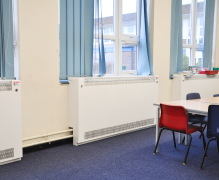
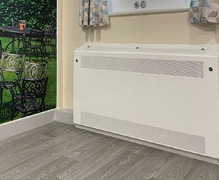
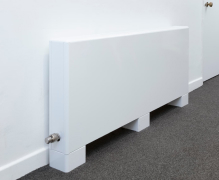

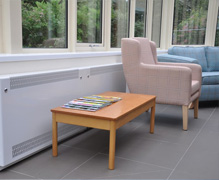

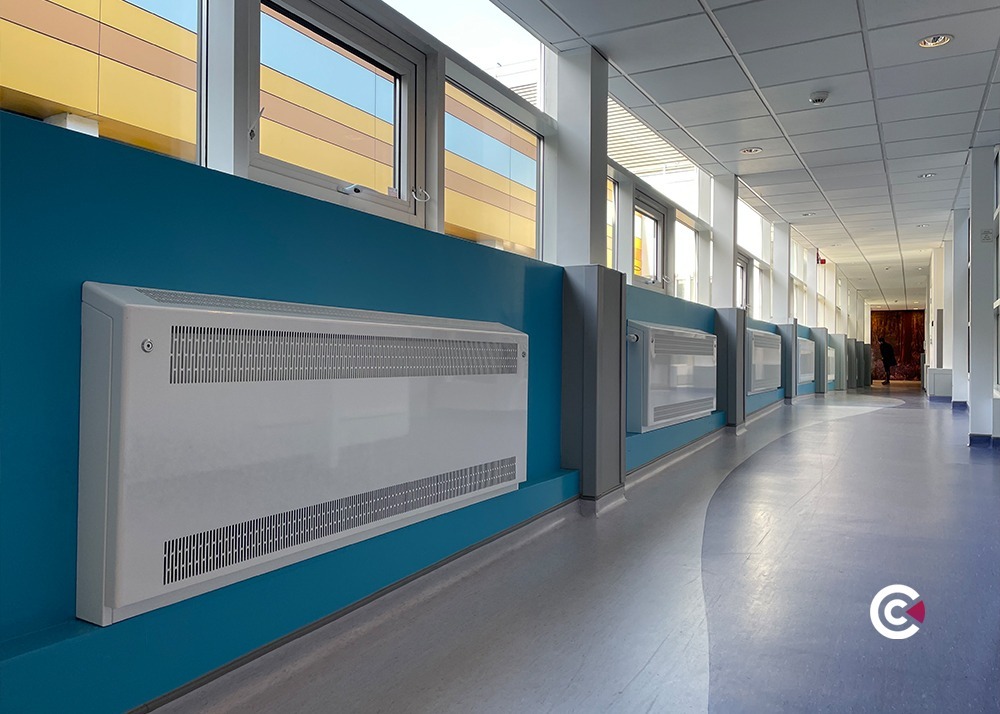
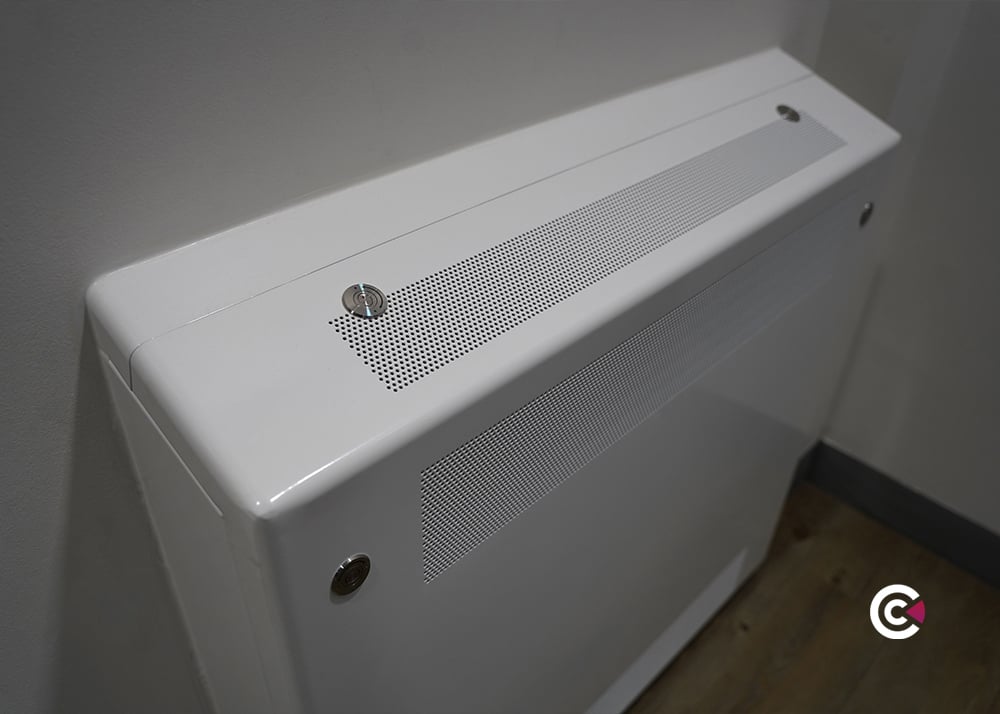

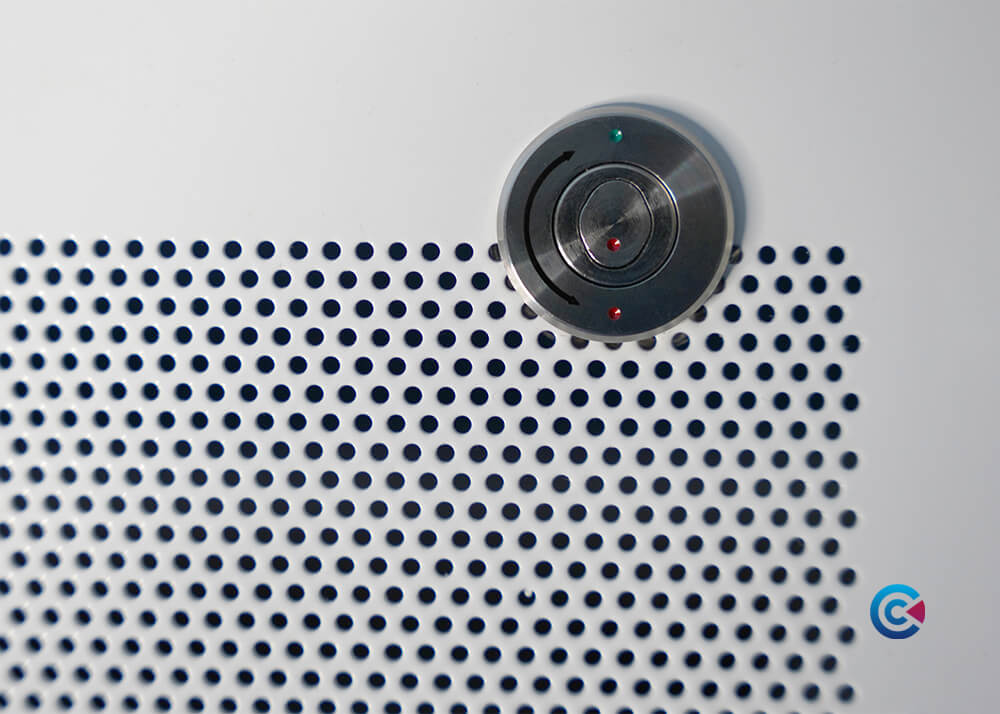





/anti-ligature%20vent%20grilles.jpg)

